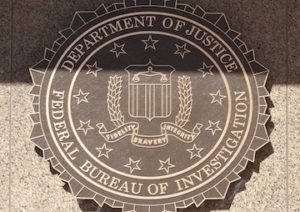Rand Paul Got One (Huge) Thing Right
The Kentucky senator's filibuster against renewing the Patriot Act made the widely covered campaign speeches of the other presidential candidates -- including Hillary Clinton -- look shallow.The Kentucky senator's filibuster against renewing the Patriot Act made the widely covered campaign speeches of the other presidential candidates, including Hillary Clinton, look shallow. YouTube / Sen. Rand Paul
YouTube / Sen. Rand Paul
Just a few people — like those who were present in the Senate chamber on May 20 and the political fanatics who watch C-SPAN at night — witnessed what has turned out to be the most meaningful event yet in an otherwise irrelevant presidential campaign. That event was the 14-hour filibuster led by Sen. Rand Paul of Kentucky, a candidate for the Republican nomination.
The filibuster had the effect of halting Senate action on the Patriot Act, the repressive 2001 law authorizing the government to gather information on millions of telephone calls and to engage in other forms of spying on innocent people. In fact, with the Senate in turmoil — and in recess — the government may not reauthorize the wretched law by a May 31 deadline, and the act may expire.
As one of the C-SPAN fanatics, I sat at home watching Paul delve deeply into the act. His arguments against the law, quickly passed after the 9/11 attacks, and those of the senators supporting him, made the widely covered campaign speeches of the other Republican presidential candidates — and the top Democratic contender, Hillary Clinton — look shallow. The few senators who stepped in to relieve Paul during his marathon oration — especially the duo from Montana, Sens. Steve Daines, a Republican, and John Tester, a Democrat — were also impressive.
A major point that Paul made is one also made by critics of the Patriot Act provision that allows unlimited gathering of telephone call information: that the provision violates the Fourth Amendment to the U.S. Constitution, which declares: “The right of the people to be secure in their persons, houses, papers, and effects, against unreasonable searches and seizures, shall not be violated, and no warrants shall issue, but upon probable cause, supported by oath or affirmation, and particularly describing the place to be searched, and the persons or things to be seized.”
The notion that a person’s home is his or her castle has its roots in the Magna Carta, which King John of England was forced to sign in 1215. British violations of settlers’ rights in Colonial America were one of the causes of our country’s revolution.
Another point that Paul made is one often overlooked in discussions of the Patriot Act — that the law has a negative impact on African-American and Latino youths, who are disproportionately targeted by the criminal justice system. The information that the National Security Agency has mined has found its way into the hands of the Drug Enforcement Administration, which works closely with local police departments. It’s not bad enough that the federal government is spying without due process for reasons of “national security,” but it’s also spying for local cops.
In his speech, Paul explained how NSA intelligence-gathering has ended up in the hands of law enforcement officials for the so-called war on drugs and other wars staged by city and county police squads. The information is then used for arrests and trials that have devastated poor African-American and Latino neighborhoods. Three out of four people in jail for drug offenses are black or brown, he said. He called this “an injustice,” and added: “The war on drugs has a racial outcome.”
This intrusion by intelligence agencies into domestic law enforcement has been reported by Reuters, The Washington Post and, in 2013, by the Electronic Frontier Foundation, a nonprofit legal organization that defends individual rights against the abuses of the digital age. “As the NSA scoops up phone records and other forms of electronic evidence while investigating national security and terrorism, they turn over ‘tips’ to a division of the Drug Enforcement Agency known as the Special Operations Division… ,” the foundation said, and “information sharing rules implemented after 9/11 allows (sic) the NSA to hand over information to traditional domestic law-enforcement agencies without any connection to terrorism or national security investigations.”
The fact that Paul brought up the connection between the NSA’s domestic spying and local law enforcement is tremendously important. In doing so, he highlighted the fact that federal drug officers and their local allies have secret access to the NSA’s powerful information-gathering tools. Thus, they can skate around Supreme Court decisions requiring prosecutors to show evidence to defense lawyers.With such access, those drug officers can utilize the NSA’s metadata tool, which permits them to sort, use and manage millions of bits of data — including phone numbers, phone locations and home addresses — in the NSA files.
Let’s say the government spies come into possession of your phone number and some information that you might use illegal drugs. Metadata capability permits the government to easily analyze that data on you. Not only can agents connect your phone number to your illegal dealer’s, but they can also connect it to your friends’ or your doctor’s. Pretty soon, without even listening to an actual phone call, they have a pretty good line on your life — the date and time of your visit to an oncologist, the name of your secret lover, the address of your dealer. You name it.
But how did the federal government — which had so much trouble with setting up the Obamacare website — develop such sophisticated data-searching tools? Truthdig Editor-in-Chief Robert Scheer explains it in his book “They Know Everything About You: How Data-Collecting Corporations and Snooping Government Agencies Are Destroying Democracy.
Scheer traces the connection between government spy agencies and Silicon Valley high-tech companies like Google, Facebook and Palantir, which have become government contractors performing top-secret work. The government gets their talent, while the companies get contracts and inside Washington connections. In his book, Scheer recalls President Dwight D. Eisenhower’s famous farewell address warning about the potential rise of “the military-industrial complex”. He writes: “A half-century later, that prediction rings eerily true when one surveys the military intelligence complex, a collaborative creation of Silicon Valley engineers and Washington national security bureaucrats.”
The military intelligence complex and its allies in the Senate and House are no doubt working overtime this week to save as much of the Patriot Act as they can by the May 31 deadline, even though an appellate court has ruled against its key collection provisions. A modified version of the Patriot Act, the Freedom Act, has passed the House, but its prospects don’t look good in the Senate.
The best idea is to kill the whole thing as an infringement on our rights. Even if you don’t agree with Paul’s other libertarian views, the Kentucky senator has made a good case for this one during his filibuster. Let’s listen to him in the next few days.
Your support matters…Independent journalism is under threat and overshadowed by heavily funded mainstream media.
You can help level the playing field. Become a member.
Your tax-deductible contribution keeps us digging beneath the headlines to give you thought-provoking, investigative reporting and analysis that unearths what's really happening- without compromise.
Give today to support our courageous, independent journalists.






You need to be a supporter to comment.
There are currently no responses to this article.
Be the first to respond.